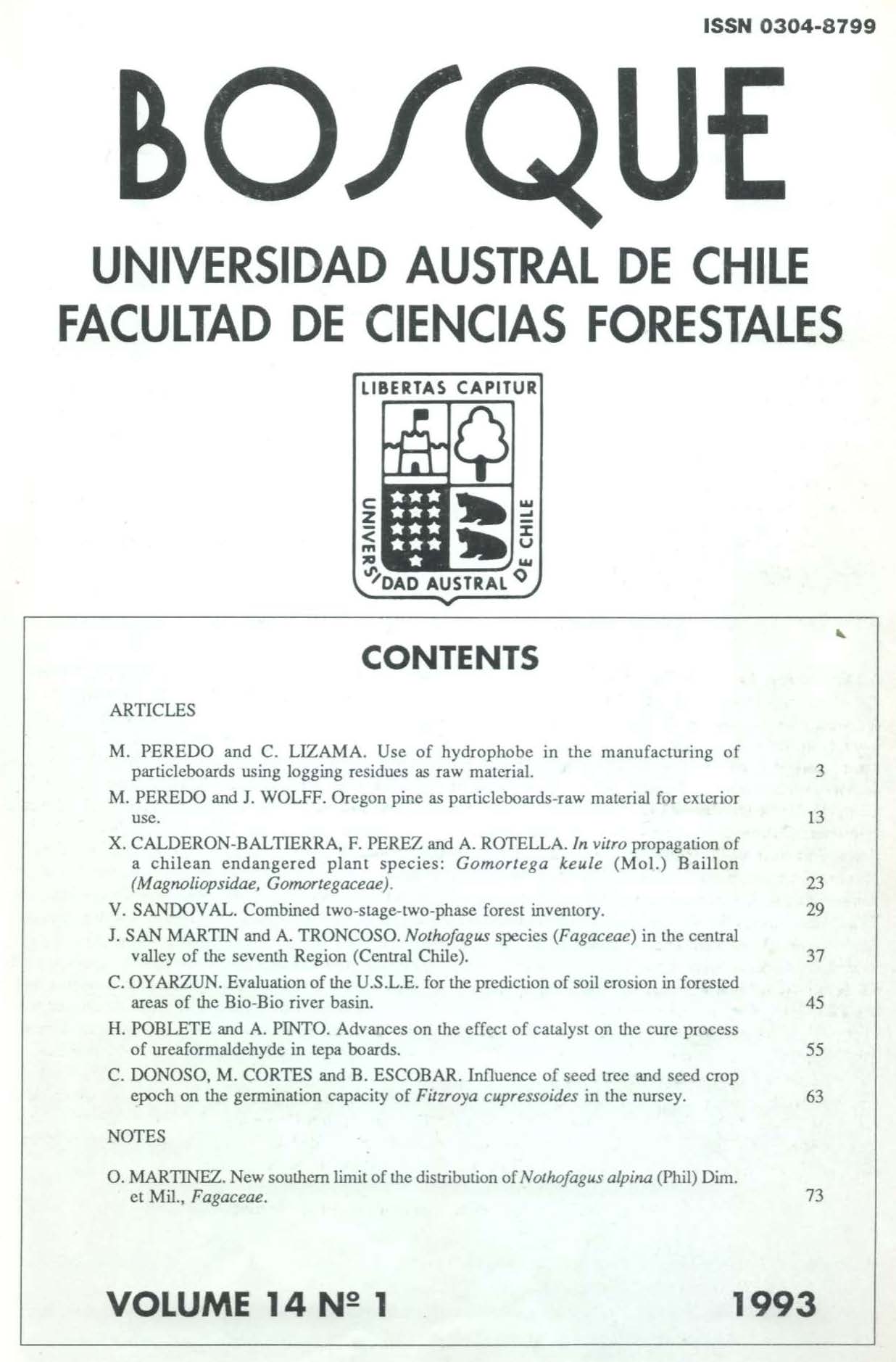Main Article Content
Jun 30, 1993
Abstract
Due to some basic characteristics like wood acidity and density, tepa (Laurelia philippiana Looser) is not considered suitable for particleboard production with ureaformaldehyde as adhesive. In this study the unfavourable hardening environment for ureaformaldehyde was modifyed correcting the pH-value, increasing the amount of catalyst (NH4Cl). Ammonium chloride (20% solution) was applied in six different levels: 0.5, 1.0, 1.5, 2.0, 2.5 and 3.0 percent based solid weight of resin. The pH-value and gel-time of the adhesive was reduced by increasing the amount of ammonium chloride. Increased catalyst level also significatively reduced the formaldehyde release of the boards.


